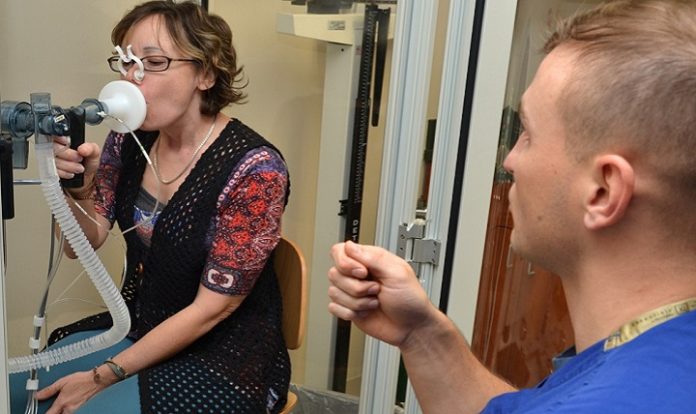Clinical trial enrolments favour men; older women are the most under-represented group
Women, especially older women are a grossly under-represented group in clinical trials on heart failure medicines.
Clinical trial enrolment favours men, according to a study presented at Heart Failure 2018 and the World Congress on Acute Heart Failure, a European Society of Cardiology congress. The study found that fewer women meet eligibility criteria for trials of heart failure medication.
Helena Norberg, author of the study, junior lecturer and PhD student, Umeå University, Sweden, said: “One of the gold standard requirements for participating in a clinical trial of heart failure medication is that patients must first reach a fixed target dose of the currently recommended treatment. This excludes many women, particularly older ones, meaning we don’t gain knowledge in this group.”
The study investigated the reasons why just 21% of patients enrolled in the PARADIGM-HF trial were women. The PARADIGM-HF trial compared the effectiveness of an angiotensin receptor neprilysin inhibitor (ARNI) versus standard treatment with an angiotensin-converting-enzyme (ACE) inhibitor in patients with heart failure and an ejection fraction of 35% or less (the proportion of blood the heart is capable of pumping out of the left ventricle). To participate in the trial, patients had to first tolerate target doses of an ACE inhibitor or angiotensin receptor blocker (ARB).
“…when study design imposes rigorous criteria for participant eligibility, the findings may not generalise to other individuals. This analysis identifies factors that may help increase the representativeness of the results of heart failure trials in the large female population suffering from this condition.”
To conduct the current study, the researchers applied the trial criteria to 1,924 community-based heart failure patients in Sweden, of whom 43% were women. When the requirement to have an ejection fraction of 35% or less was applied there were 401 patients remaining, of whom 28% were women. After applying the other participation criteria of the trial, 246 patients were excluded because they failed to reach the target dose of an ACE inhibitor or ARB and 60 were excluded for other reasons. That left 95 eligible patients, of which just 15 were women (16%).
The requirement to reach the target dose of an ACE inhibitor or ARB disproportionately excluded women. In the community-based heart failure population, just 26% of women with heart failure and a reduced ejection fraction could reach the target dose compared to 43% of men.
When the researchers compared the characteristics of women and men in the study with heart failure and reduced ejection fraction, they found that women were significantly older (81 versus 75 years on average) had lower body weight (69 versus 85 kg), worse kidney function (estimated glomerular filtration rate of 49 versus 70 ml/min), and higher systolic blood pressure (127 versus 123 mmHg). When they examined which of those variables were significantly associated with women’s failure to achieve the target dose of an ACE inhibitor or ARB, they found it was their older age and worse kidney function.
Norberg said: “These target doses were calculated from trials conducted primarily in men with heart failure, who tend to be younger and have better kidney function. Future trials in heart failure should use achievement of maximum tolerated doses, rather than fixed target doses, as entry criteria to ensure that women are more represented.”
She noted that the ARNI has been approved for clinical use by the US Food and Drug Administration and the European Medicines Agency. However, it is contraindicated in pregnant or breastfeeding women, and should be used cautiously in patients with severe renal impairment due to the risk of hyperkalaemia. It should not be used at the same time as an ACE inhibitor or ARB.
Carlos Aguiar, ESC spokesperson on heart failure, said: “Controlled clinical trials are widely regarded as the gold standard for evaluating the efficacy of a treatment. Yet, when study design imposes rigorous criteria for participant eligibility, the findings may not generalise to other individuals. This analysis by Norberg and colleagues identifies factors that may help increase the representativeness of the results of heart failure trials in the large female population suffering from this condition.”


